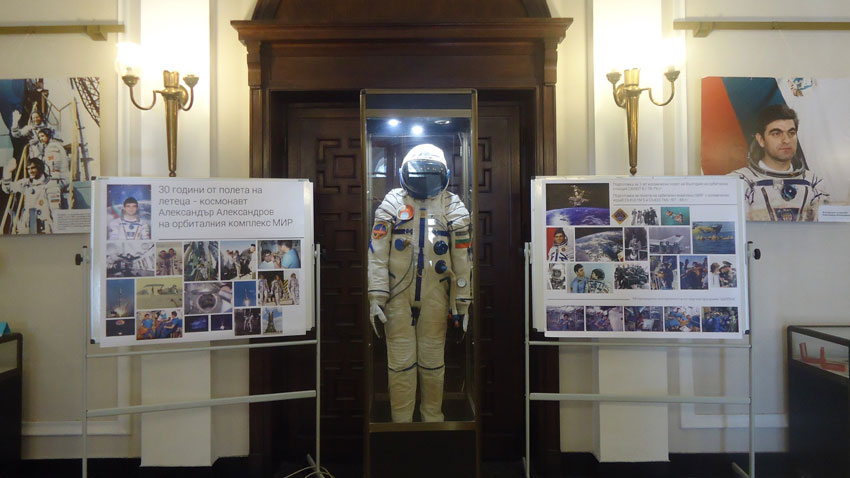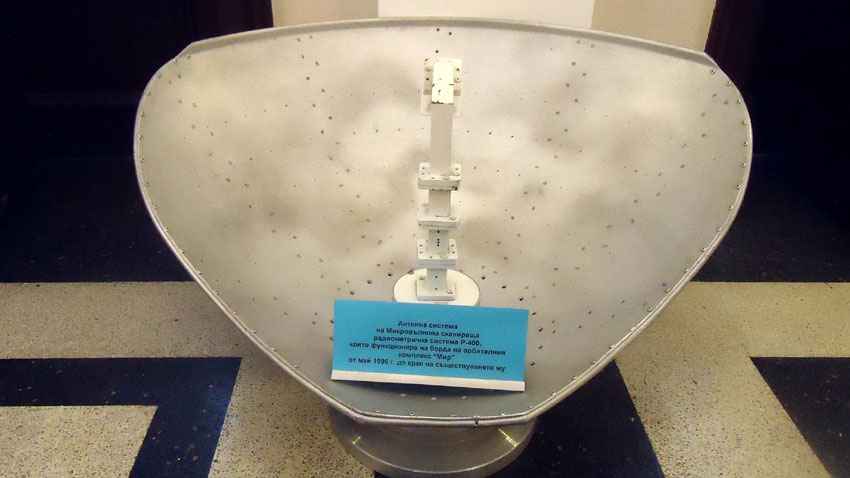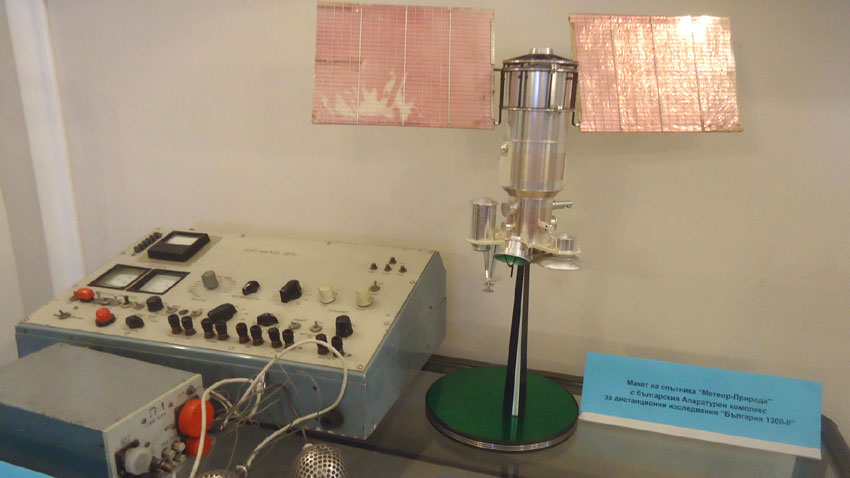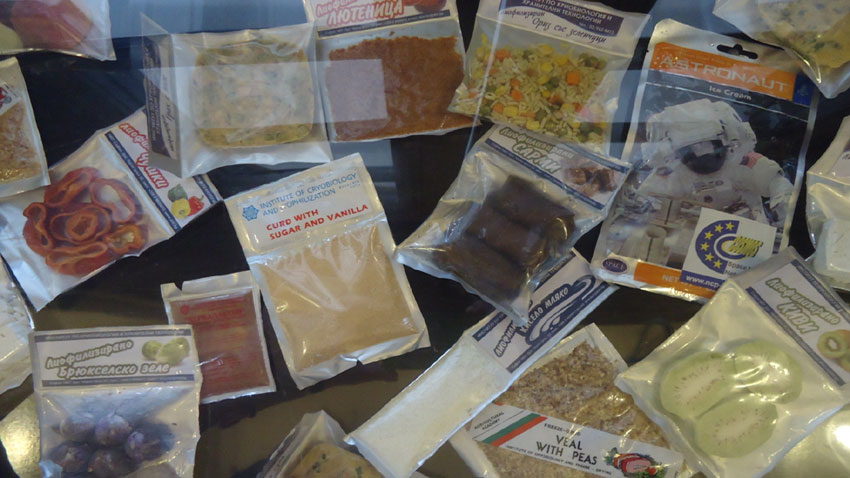The Bulgarian Academy of Sciences /BAS/ marks the 30thanniversary of second Bulgarian spaceman Alexandr Alexandrov’s flight with an exhibition of the original appliances used onboard of the Mir space station. The space suit of the cosmonaut, photographs, scientific and video materials – those are also among the exhibits.

On 7 June 1988 the Soyuz TM-5 spacecraft took off from the Baikonut Cosmodrome with the team of Alexandrov, Anatoly Solovyev and Viktor Savinykhonboard. However, about a mile away from the Mir space station the trio faced a challenge that endangered the entire mission.
‘One of the antennas outside got loose and the onscreen information that we received was one moment there and the other – gone,’ Alexandrov recalls. ‘The guidelines said that we should return in case of such a scenario, but we took our chances to dock, as a second failure of that kind after 1979 /the first flight of cosmonaut Georgi Ivanov which failed right at this point/ would turn into a trademark for Bulgaria. We had decided to do anything possible to link to Mir yet down on Earth – and we did it.’

Just like almost any other boy in the mid-1900s Alexandr Alexandrov dreamt of becoming an astronaut. He got inspired by the books of Jules Verne, opted for the job of a pilot and got to the audition for a first Bulgarian spaceman. Despite his perfect training, the other Bulgarian cosmonaut Georgi Ivanov took off on 10 April 1979 and Alexandrov remained on the bench as a substitute. However, 9 years later he won the fight for his childhood dream.
Can we imagine the lack of gravity here, on Earth?
‘No, you can’t picture it if you haven’t felt it yourself,’ the spaceman replies. ‘We used to think back in time that meteorite streams, heavy inter-galaxy particles and radiation would be the main enemy in our struggle to conquer outer space. Zero-gravity was viewed as some heavenly state, allowing anyone to flow like a bird. However, it turned out that it was that one thing which wouldn’t allow us to fly in open space on a daily basis due to the numerous factors harmful for the human body.’

The team successfully implemented the Shipka scientific program and performed 56 experiments.
‘Our achievement was unique for its time, as for a first time ever we managed to computerize all the experiments,’ Alexandrov says. ‘One of those was related to night sleep and the Americans had tried that before, but failed as their astronaut hadn’t slept. We know that night sleep is the only factor that recovers the body. That was why we did that experiment one month before the flight, during the flight and one month afterwards, proving that the spaceman could recover in Space. I.e. all phases of night sleep existed out there. This shows that flights can take place to other planets and galaxies, so our contribution to international space flights is major.’

How does that touch to infinity change a person?
‘Each flight changes us, as we see that we are only a tiny particle in the universe,’ Alexandr Alexandrov says. ‘That is why we see envy, malice and careerism as undignified and we find it hilarious to see those emotions in someone. It looks like the alloy that we – spacemen, are made of is a bit different…’
English version: Zhivko Stanchev
Photos: Diana Tsankova
Deanna Haag was born in Cleveland, Ohio, USA. She grew up dreaming of adventure and new horizons. After graduating from Wittenberg College in Ohio with a degree in Fine Arts, her life took an unexpected turn. The young American stood out for her..
Support for the activities of the Institute of Social Activities and Practices in Sofia is the cause that will unite organizers and guests of the Viennese Ball, which has become a tradition for the Bulgarian capital. This year's edition, scheduled..
Topics related to renewable resources and natural disasters united students from the Bulgarian Sunday School "Assen and Iliya Peykovi" in Rome, the First English Language School in Sofia and the Greve High School near Copenhagen. The project aims to..
Exactly 3 years ago, on February 24, Russia’s invasion of Ukraine began – an event that woke up Europe 77 years after the end of World War II and called..

+359 2 9336 661
